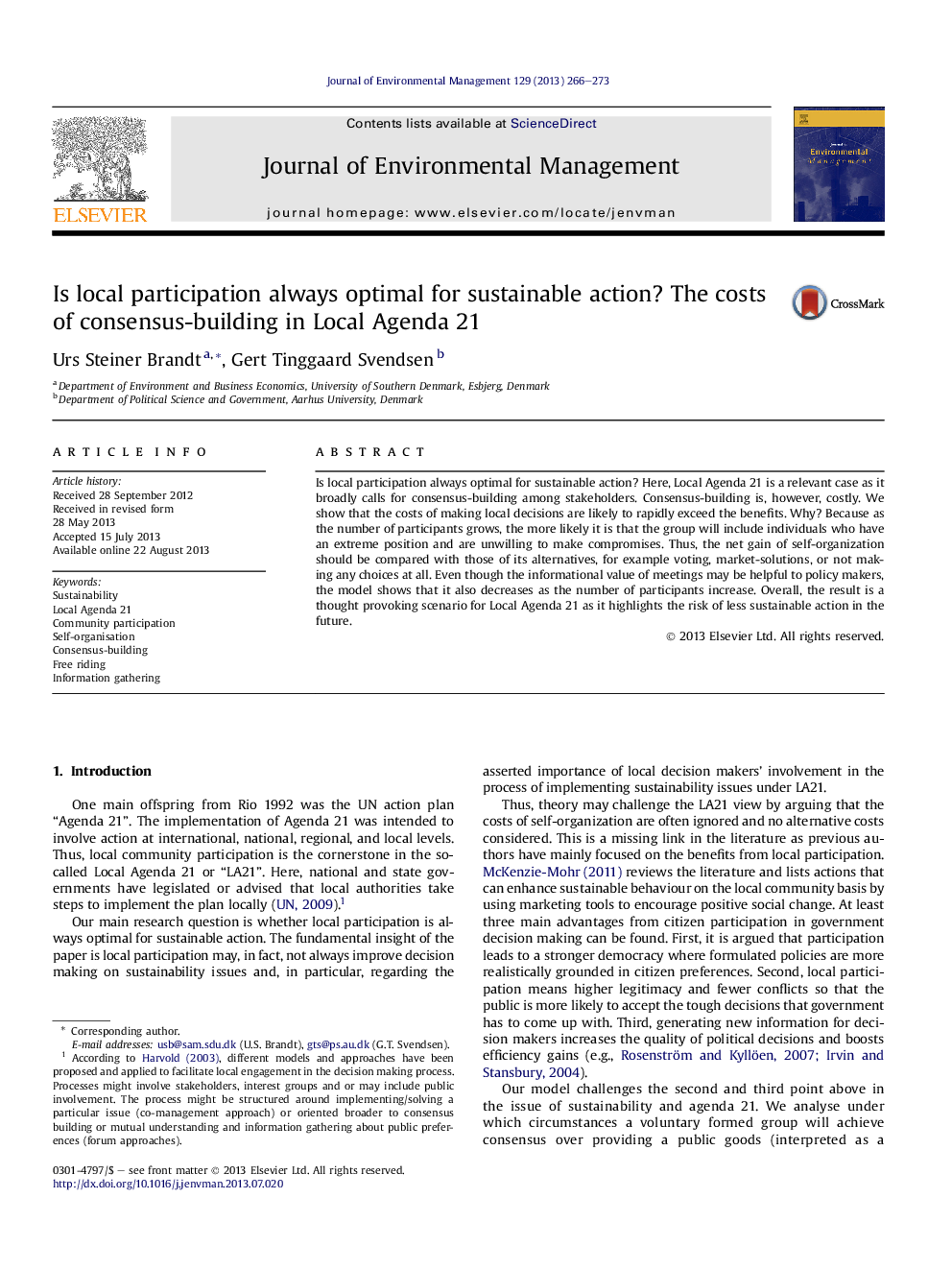| Article ID | Journal | Published Year | Pages | File Type |
|---|---|---|---|---|
| 1056168 | Journal of Environmental Management | 2013 | 8 Pages |
•A number of participants with different initial positions meet to achieve consensus.•Opportunity costs and costs from moving away from his/her preferred position are present.•Consensus is less likely the larger the costs for the participants and the number of participants involved.•The result highlights the risk that Local Agenda 21 results in less sustainable action in the future.
Is local participation always optimal for sustainable action? Here, Local Agenda 21 is a relevant case as it broadly calls for consensus-building among stakeholders. Consensus-building is, however, costly. We show that the costs of making local decisions are likely to rapidly exceed the benefits. Why? Because as the number of participants grows, the more likely it is that the group will include individuals who have an extreme position and are unwilling to make compromises. Thus, the net gain of self-organization should be compared with those of its alternatives, for example voting, market-solutions, or not making any choices at all. Even though the informational value of meetings may be helpful to policy makers, the model shows that it also decreases as the number of participants increase. Overall, the result is a thought provoking scenario for Local Agenda 21 as it highlights the risk of less sustainable action in the future.
